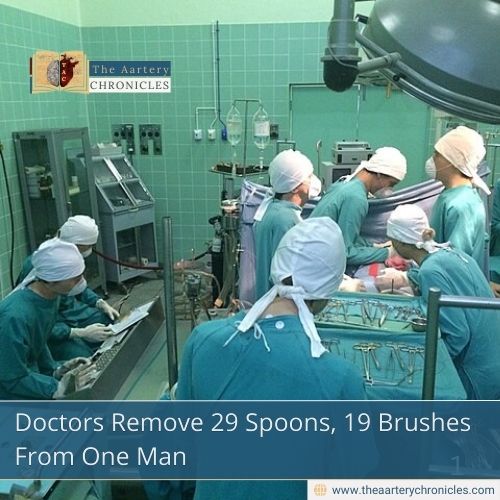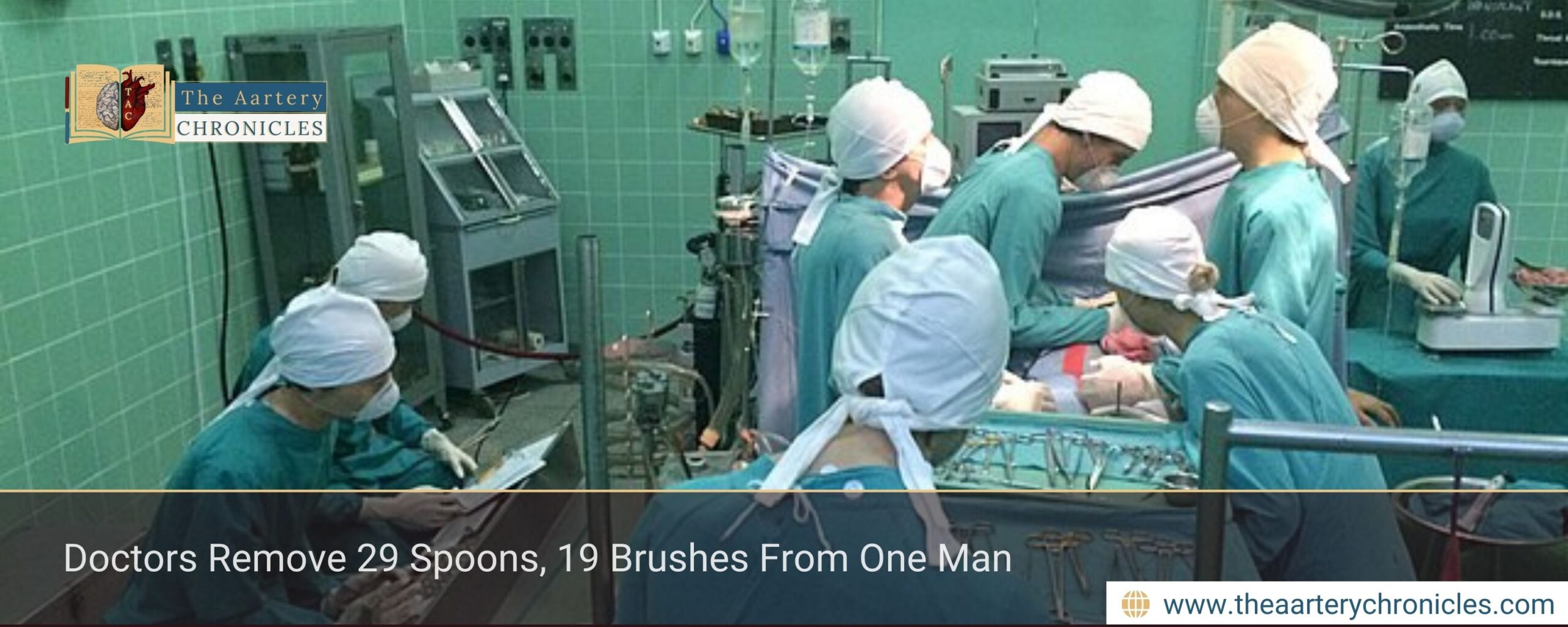

Doctors Remove 29 Spoons, 19 Brushes From One Man
In a shocking medical case from Uttar Pradesh, a 35-year-old man undergoing treatment at a de-addiction centre developed a bizarre spoon and toothbrush addiction. Surgeons were forced to operate after scans revealed that he had swallowed 29 steel spoons, 19 toothbrushes, and two pens.
How the Addiction Started
The patient, Sachin from Hapur, was initially admitted for drug rehabilitation. However, during his stay, he allegedly faced poor living conditions at the centre. He claimed that food was limited, “very little vegetables and only a few chapatis”, and even snacks sent by his family rarely reached him.
Frustrated and angry, Sachin started stealing spoons from the dining area. According to his statement, he broke them into smaller pieces in the bathroom and swallowed them with water. Over time, he escalated the behaviour to include toothbrushes and pens, leading to what doctors later described as a rare form of spoon and toothbrush addiction.
Medical Complications and Surgery
The unusual habit only came to light when Sachin developed severe stomach pain. Doctors attempted an endoscopy to remove the foreign objects, but the sheer number made the procedure impossible. Consequently, surgeons performed a major operation to clear his stomach, carefully extracting all 50 items.
Hospital officials confirmed that the surgery was successful and that the patient is now recovering under medical supervision.
Expert Opinion: Understanding Pica and Object Swallowing
Medical experts suggest that this condition resembles pica, a psychiatric disorder where individuals consume non-food items. Stress, frustration, and poor mental health support may worsen such tendencies. In Sachin’s case, anger and deprivation inside the rehabilitation centre likely acted as triggers.
Doctors emphasise that early psychological intervention is crucial in preventing patients with a history of substance abuse from developing such dangerous coping mechanisms.
Conclusion
This rare case of spoon and toothbrush addiction highlights the importance of monitoring patients in rehabilitation centres not only for substance relapse but also for unusual and harmful behaviours. It also underscores the need for improved patient care, nutrition, and mental health support in de-addiction facilities.
Source: Inputs from various media Sources
I’m a pharmacist with a strong background in health sciences. I hold a BSc from Delhi University and a pharmacy degree from PDM University. I write articles and daily health news while interviewing doctors to bring you the latest insights. In my free time, you’ll find me at the gym or lost in a sci-fi novel.
- Priya Bairagi
- Health News and Updates,People Forum
- 26 September 2025
- 13:00








